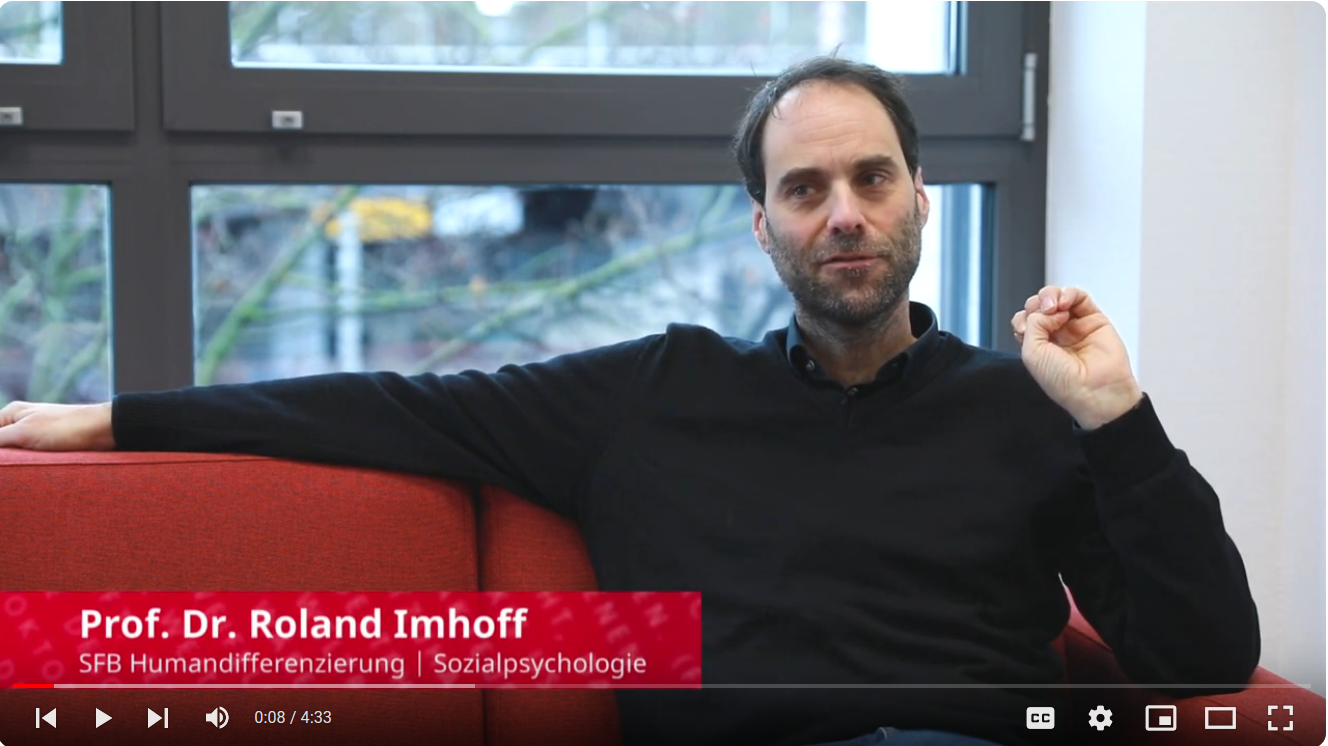Roland Imhoff
Principal Investigator | Mobility and Sorting Processes
I hold a position as chair of social and legal psychology at Johannes Gutenberg University Mainz and define myself as a cognitively oriented social psychologist. I am interested in individuals’ experiences and behavior in social contexts, and specifically how they make sense of and navigate their social environment.
To avoid information overload resulting from perceiving, processing, and remembering each detail of each person, humans often simplify and heuristically process their information ecology. The cognitive process of human categorization drastically reduces complexity and helps to go beyond the information given. Hence, instead of fully processing each individual’s unique characteristics, they are lumped into categories that are labeled and associated with assumed attributes (stereotypes).
Aside from these basic social-cognitive processes of perceiving, sorting, comparing, judging, and stereotyping others, I am particularly interested in political psychology, i.e., psychological processes involved in societal discourse. This concerns questions around how our representations of (national) history serve as a foil and a benchmark to make sense of current issues, but also how a general view of the world as being determined by plots hatched in secret (conspiracy mentality) evolves and influences our behaviors in a social context.
What fascinates me most about the Collaborative Research Center (CRC) 1482 “Studies in Human Differentiation” is the confrontation with other perspectives, disciplines, and epistemic traditions. Whereas psychologists often follow an ideal of identifying human universals—ideally across different contexts—most other disciplines involved in the CRC’s work are much more case-oriented and zoom in on highly specific contexts. This (epistemic) friction not only creates warmth, but also sparks curiosity and helps one to leave one’s routine thinking habits.
Foto: Stephanie Füssenich
